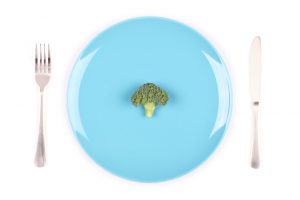 Growing up you probably played with a yoyo. It would go down and up. Down and up. Sure it entertained us but the idea of a yoyo can greatly compare in our efforts to lose weight. It can go down and up, more so with age as our body just doesn’t function as it used to in our younger years.
Growing up you probably played with a yoyo. It would go down and up. Down and up. Sure it entertained us but the idea of a yoyo can greatly compare in our efforts to lose weight. It can go down and up, more so with age as our body just doesn’t function as it used to in our younger years.
Our metabolism has slowed down and it seems out bodies just don’t break down food like before. It can be all too frustrating especially because weight gain has been linked to numerous health concerns. Even when you visit your doctor they probably stress the importance of managing your weight.
Advertisement
It can be quite frustrating trying to keep the number on the scale down and you may have tried everything at this point to do so. There may be one thing, though, which you haven’t tried yet and in regards to weight loss it’s been showing some promise.
What is intermittent fasting?
 Intermittent fasting is a form of eating which challenges the concept of consuming three to six meals a day. Instead, you cycle days of fasting with days of eating.
Intermittent fasting is a form of eating which challenges the concept of consuming three to six meals a day. Instead, you cycle days of fasting with days of eating.
Unlike other diets which specifically outline what foods to eat, intermittent fasting cares more about when you eat rather than about what you eat. Although, it is important to note that healthy eating is always recommended – so no binge-eating burgers and fries!
There are different modes of intermittent fasting, which we will explain later on to give you a better understanding. But first let’s explore intermittent fasting and its role in weight loss.
Role of intermittent fasting in weight management
 So what role does intermittent fasting play in weight management and why is it so effective? Well, first and foremost with intermittent fasting you are reducing your caloric intake. That in itself is a means of losing weight.
So what role does intermittent fasting play in weight management and why is it so effective? Well, first and foremost with intermittent fasting you are reducing your caloric intake. That in itself is a means of losing weight.
Additionally, our body changes when we fast. What we mean by this is blood sugar lowers and changes in hormones occur.
A study published in the American Journal of Clinical Nutrition, in this study revealed that intermittent fasting has the ability to promote weight loss. 16 obese participants over 10 weeks partook in alternate-day fasting. Before the study was up – around the eight week mark – participants already experienced weight loss as well as a reduction in body fat. Furthermore, LDL cholesterol lowered. And so did the blood pressure levels. This is just one of many studies which show the weight loss benefits of intermittent fasting.
Intermittent fasting methods
 There are many different methods of intermittent fasting. Therefore it makes it much easier to find a style and method to suit your own personal needs. Here are some of the varieties of intermittent fasting.
There are many different methods of intermittent fasting. Therefore it makes it much easier to find a style and method to suit your own personal needs. Here are some of the varieties of intermittent fasting.
Lean gains: This form of intermittent fasting helps create lean muscle for those who frequent the gym. To complete this style of intermittent fasting women should fast for 14 hours a day and men for 16 hours. In turn, the remaining eight to 10 hours are then for eating.
In this form of intermittent fasting the foods you consume should be muscle-friendly. What we mean by this is that you should be consuming protein and healthy fats.
Eat, stop, eat: This style of intermittent fasting is geared towards those who already eat healthy and just looking to boost themselves a bit more. Just like the title suggests you will eat for a day, fast for 24 hours and then go back to a day of eating. During the fasting period calorie-free beverages are allowed.
This intermittent fasting method does not pose any restrictions on food and can be done gradually bringing yourself up to a full 24 hours of fasting.
The warrior diet: No cheating is a`llowed in this form of intermittent fasting. In order for the warrior diet to be successful you must complete it whole-heartedly. In this mode of fasting, you will need to fast for 20 hours a day and then are allowed a large meal at night.
20 hours may seem like a long time to fast but in the warrior diet you can enjoy some protein and vegetables, but do keep it quite minimal.
Fat loss forever: The name really says it all, in this version of intermittent fasting you can say goodbye to fat. Fat loss forever combines the traits present in the lean gains, eat, stop, eat and warrior diet. Furthermore this fasting style allows you a cheat meal followed by 36 hours of fasting.
The alternate-day diet/fasting: This is the form of intermittent fasting which was previously found to be successful for weight-loss in previous research. This form of fasting will have you eating very little, or fasting, one day and then resuming regular eating the next alternating between the two forms of eating. Calorie wise on your fasting day you may only consume between 400 and 500 calories and on your eating day you can bring it up to 2000.
Because this diet doesn’t have you stop eating people find it the easiest version of intermittent fasting.
Benefits of intermittent fasting
Now that we understand the different forms of intermittent fasting and already know it can be quite successful for weight loss, let’s examine other benefits it may offer.
It can make you live longer: In a study found in Gerontology, rats were used to determine intermittent fasting as a means on increasing longevity. The rats were put on an alternate-day fasting and the results were amazing. Researchers found that those rats who were on the diet actually lived longer than rats who simply ate whatever they wanted.
It slows down brain aging: In a study published in the National Institutes of Health, intermittent fasting was successful in slowing down the aging process of the brain. By eating this way neurons in the brain become protected because intermittent fasting affects energy and oxygen and improves the cells stress response.
It may deter other health issues: It will not only help you lose weight, which has often be attributed to many illnesses, but intermittent fasting may also deter other illnesses like diabetes.
Embarking on intermittent fasting
Now that you know the facts that surround intermittent fasting it is up to you to decide if it is something to embark on. Clearly there is evidence to support this form of eating but some caution must be taken.
If you have a health condition which does not allow you to fast, do not partake in intermittent fasting without a doctor’s guidance. Fasting isn’t easy, especially if you currently enjoy a typical American diet. It does require a strong will and somewhat strict adherence. In the end, though, the benefits may improve your health as well as help you live longer.
Related Readings:
Detox your liver with these 6 foods
What performs 500 different functions, weighs about three pounds, can regenerate itself and ensure the body is toxic-free? Your liver! This highly important, but often overlooked organ is a powerhouse when it comes to the human body. With such a vital role, making sure it stays healthy will help put you on a path to a long and happy life. Continue reading…
Advertisement
Feeling tired? This is how you could fix it
You ate too much, drank too much, and now you’re left feeling sluggish and not yourself. The holidays can really take a toll on your body, and with an increase of sugar and alcohol consumption, they can almost leave you feeling toxic. Continue reading…
Sources:
http://dailyburn.com/life/health/intermittent-fasting-methods/
http://ajcn.nutrition.org/content/90/5/1138
http://ajcn.nutrition.org/content/81/1/69.short
http://www.ncbi.nlm.nih.gov/pmc/articles/PMC2622429/
http://www.karger.com/Article/Abstract/212538
http://authoritynutrition.com/what-is-intermittent-fasting/ http://www.ibimapublishing.com/journals/ENDO/2014/459119/459119.html
http://www.theiflife.com/intermittent-fasting-101-how-to-start-part-i/
